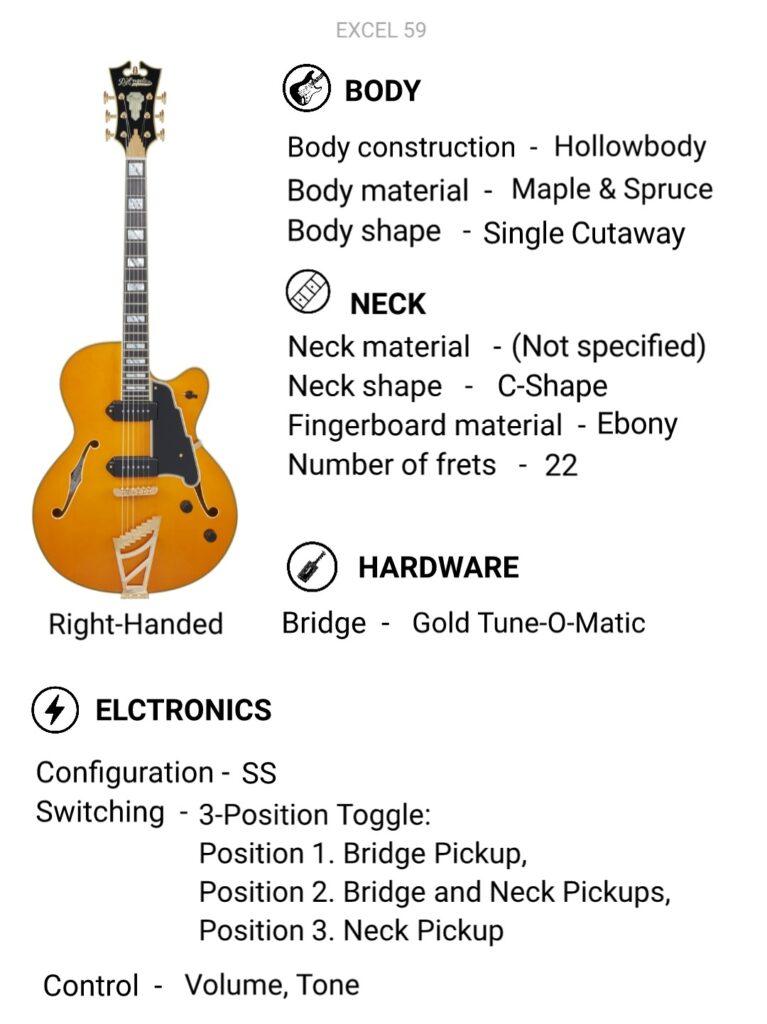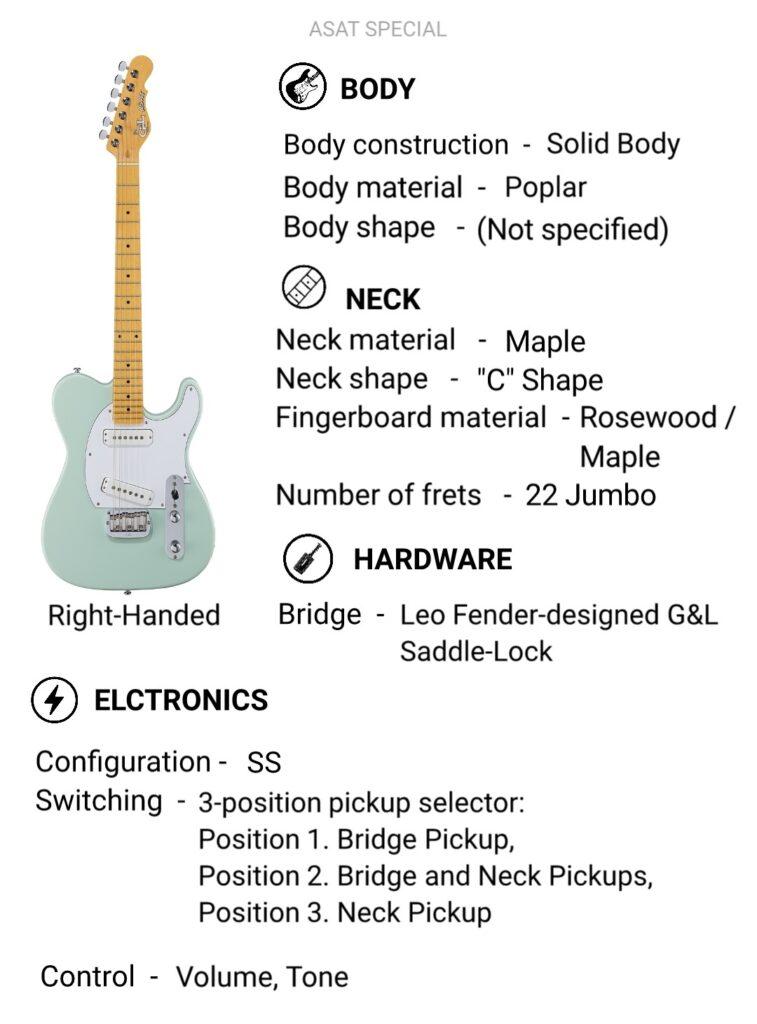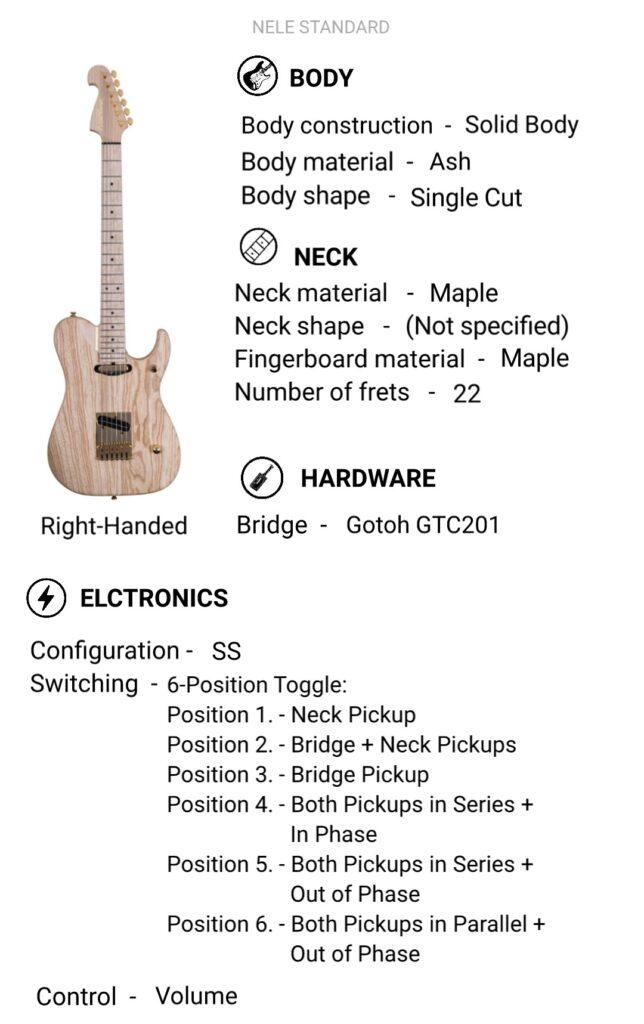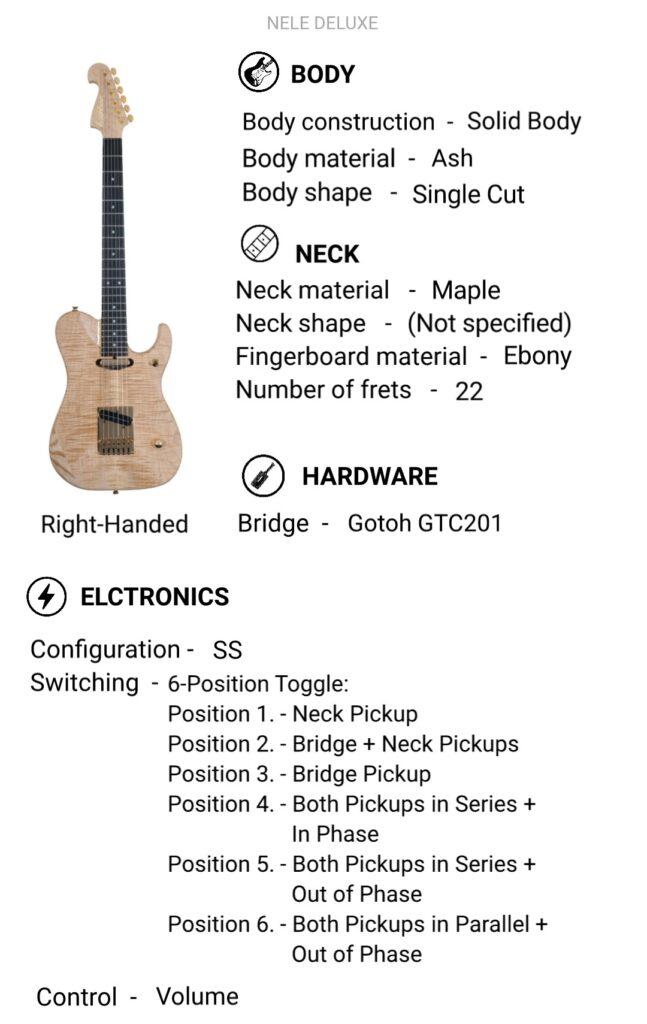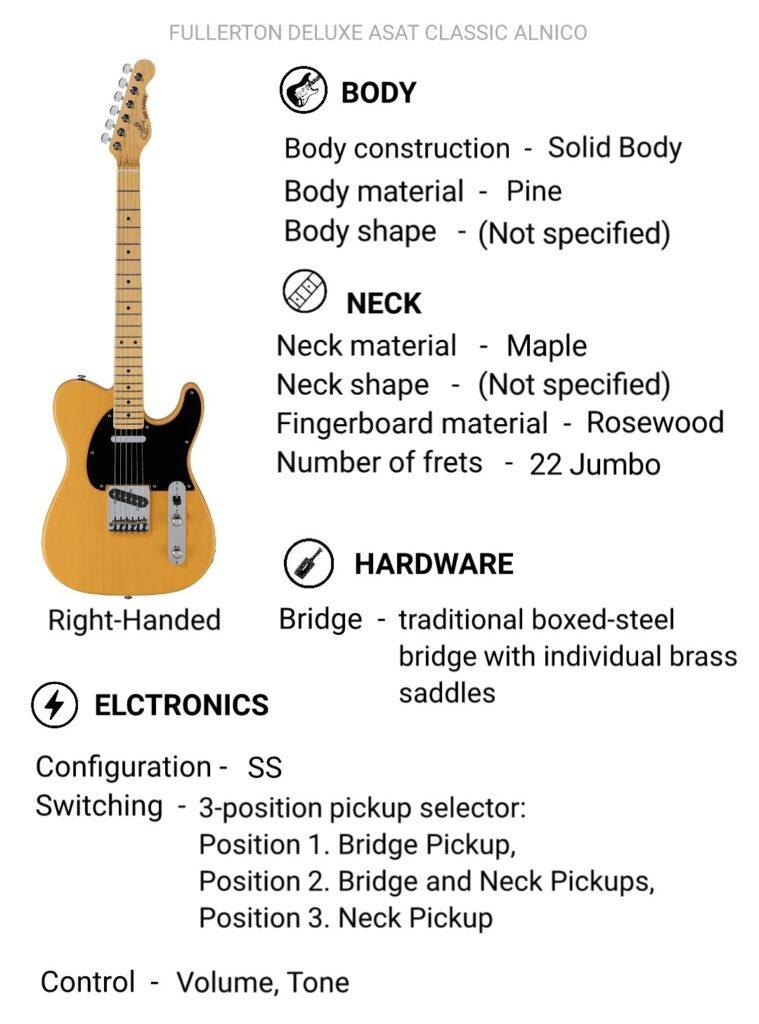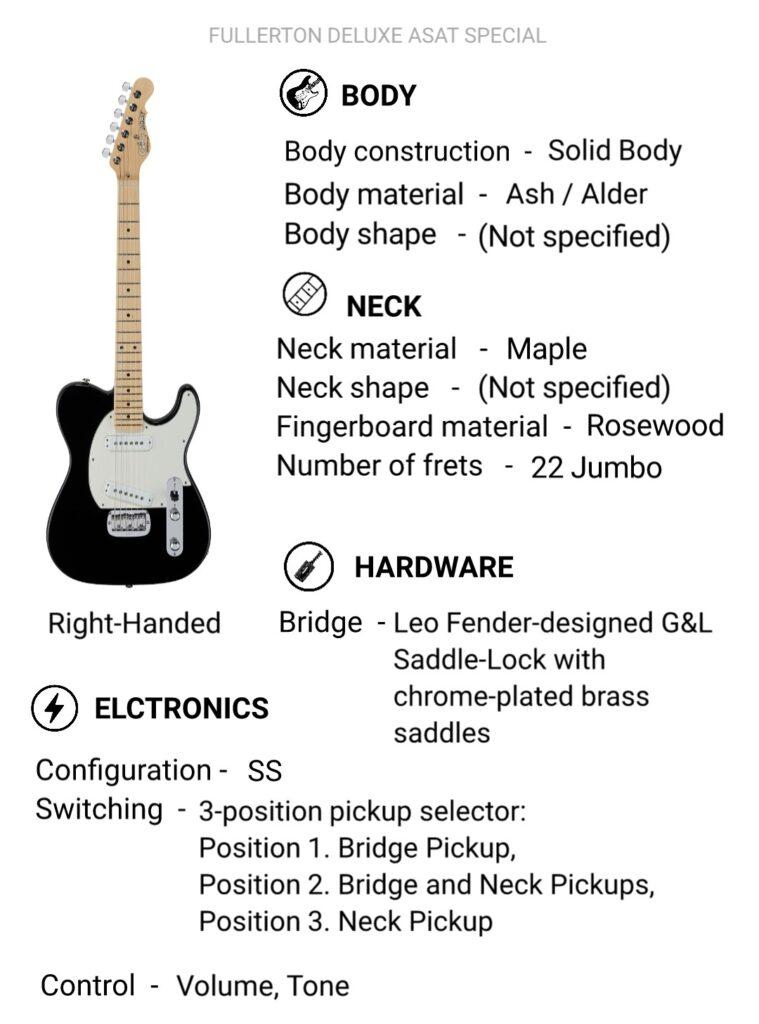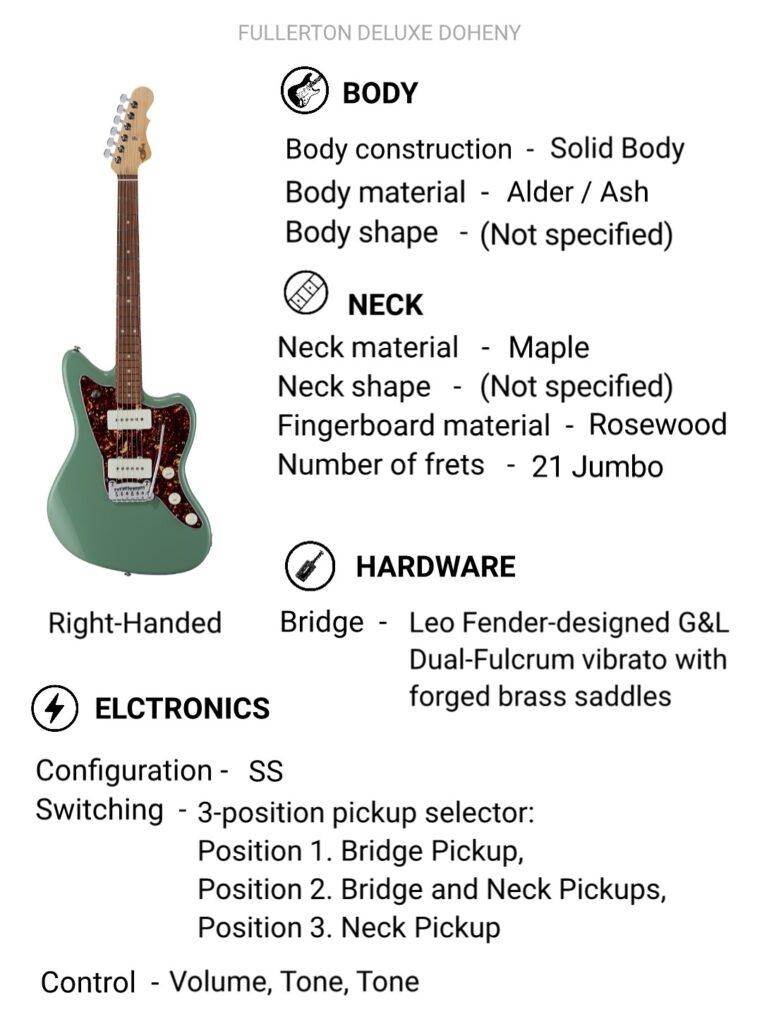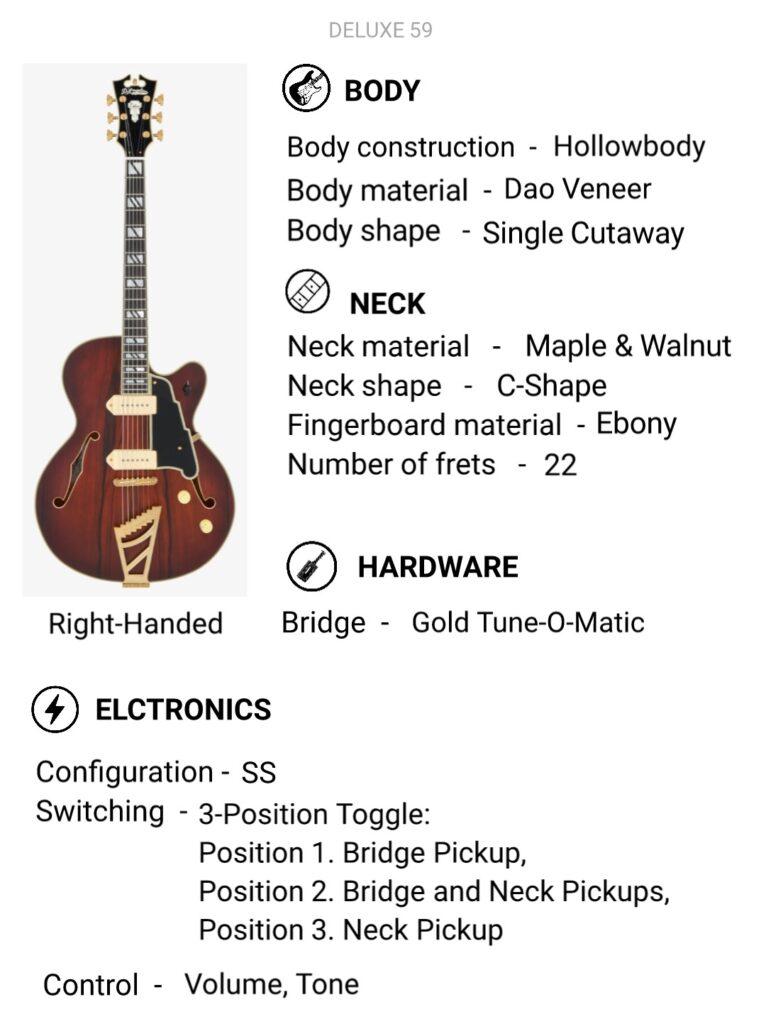List of Best SS (single-coil single-coil) electric guitar with features and specifications, You can compare electric guitar
prices on different online stores.
Epiphone Les Paul Melody Maker E1
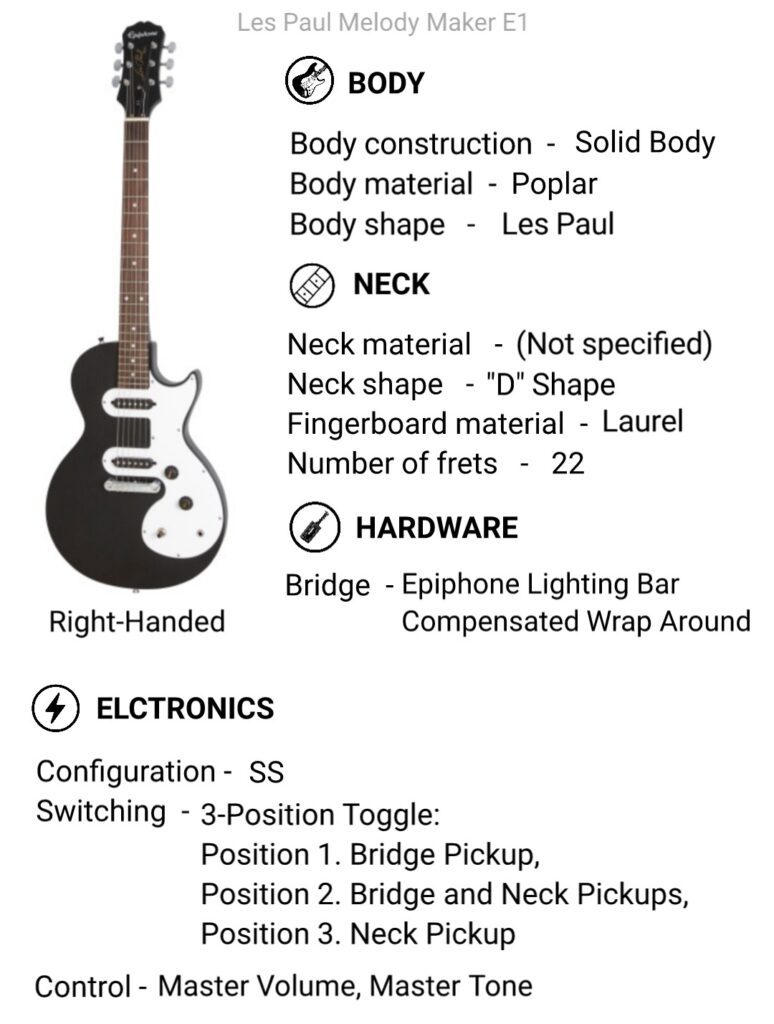
Gibson Les Paul Standard 50s P-90
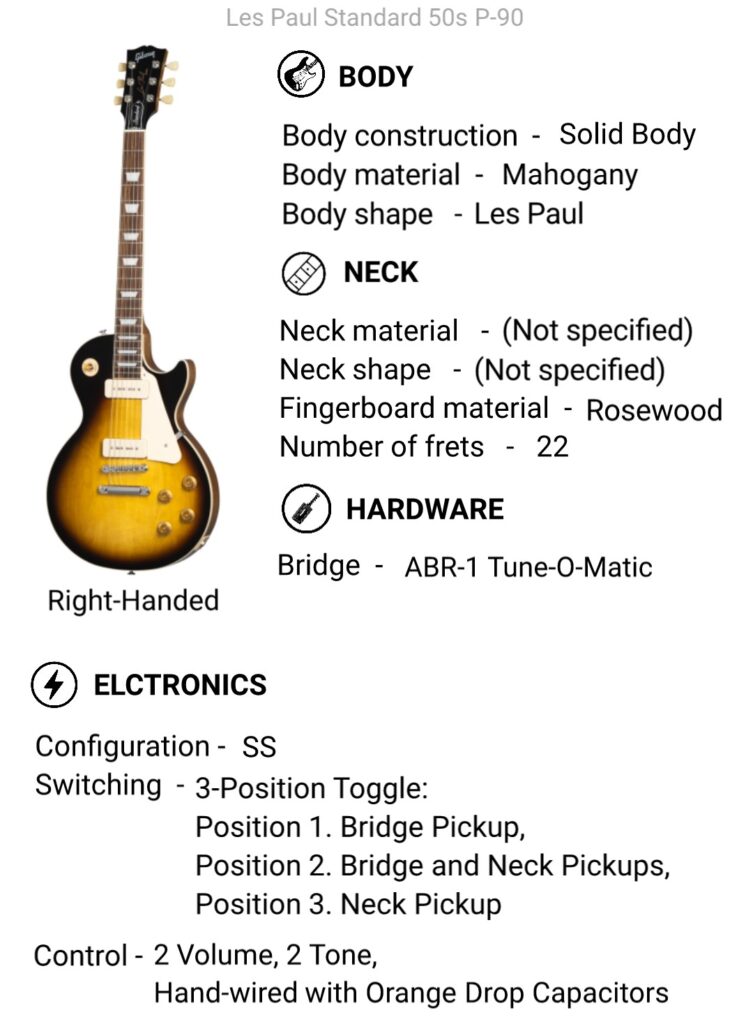
Fender Affinity Series Telecaster
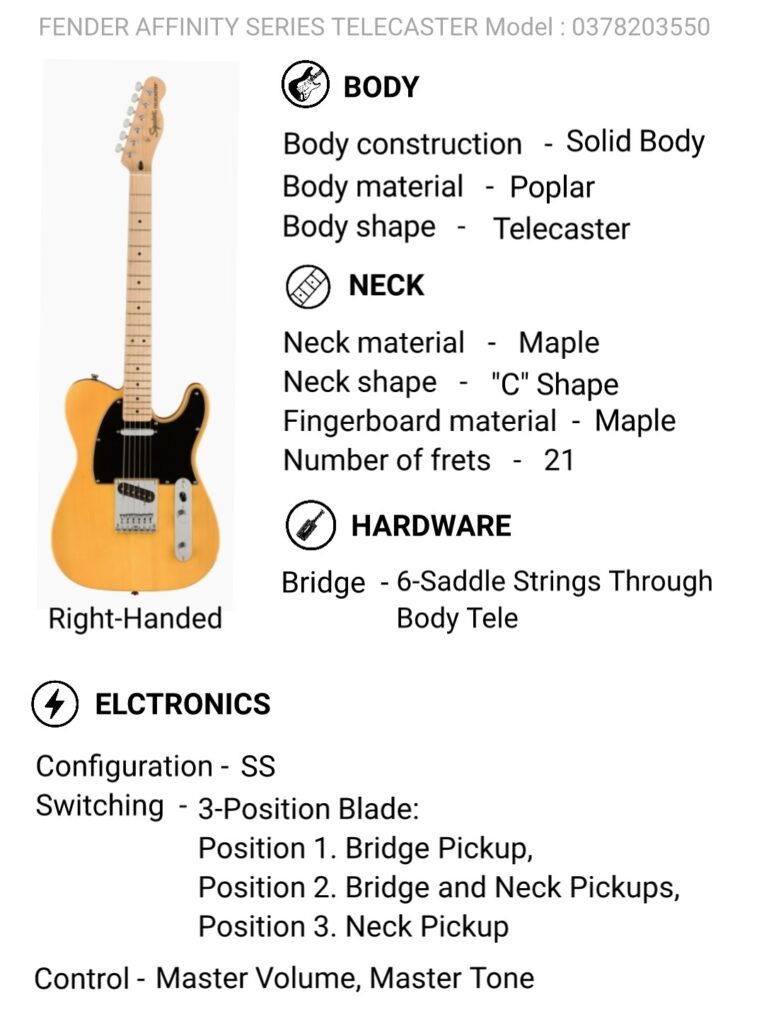
Fender Player Plus Telecaster
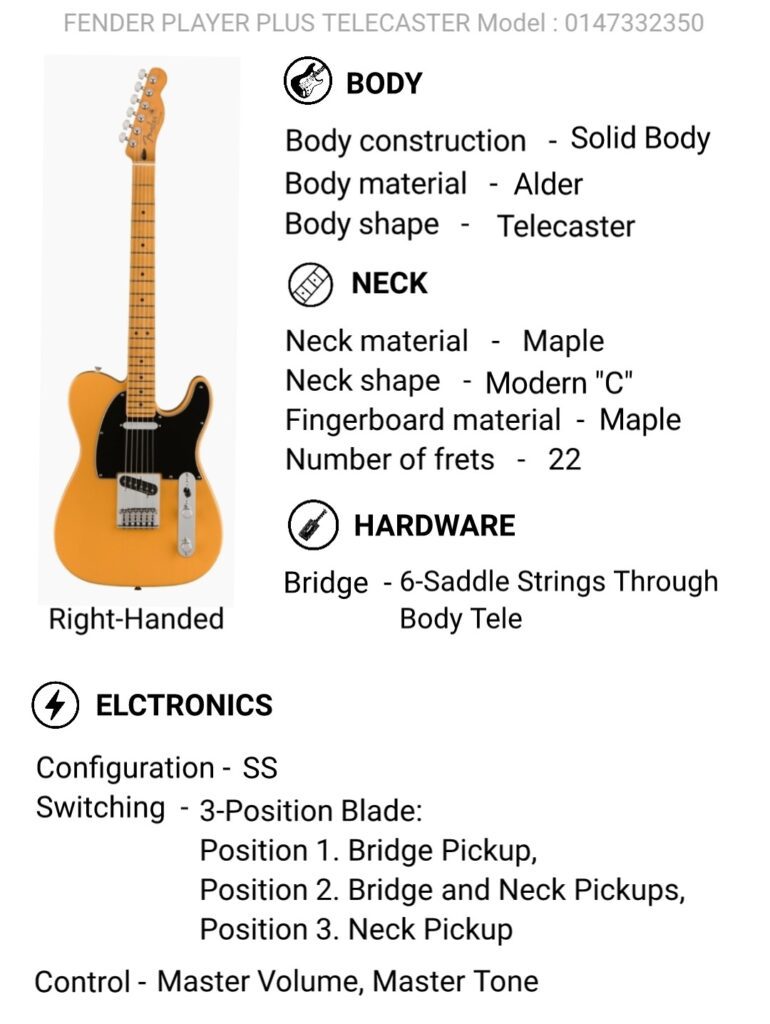
Fender 40th Anniversary Telecaster Vintage Edition
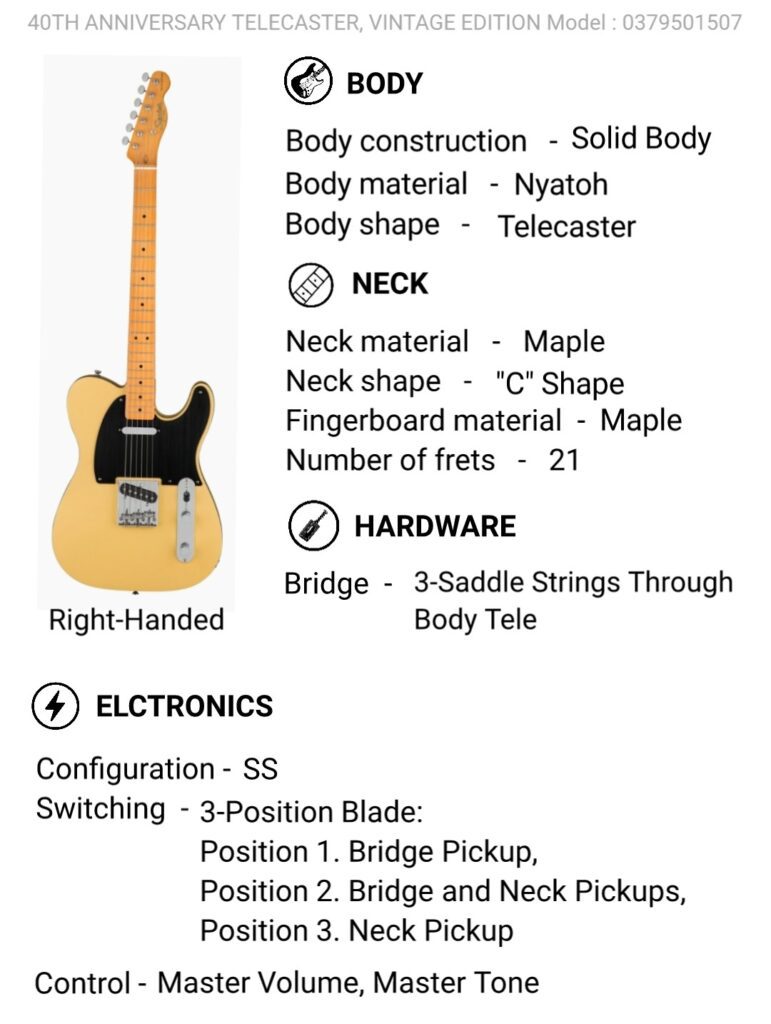
Fender 40th Anniversary Jazzmaster Gold Edition
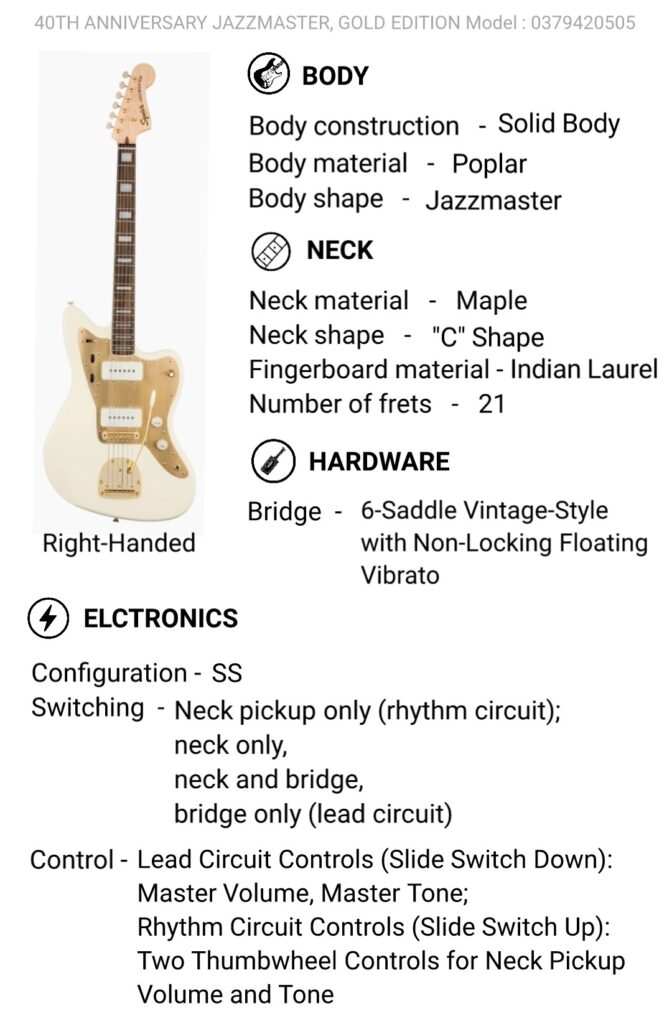
Fender Affinity Series Jazzmaster
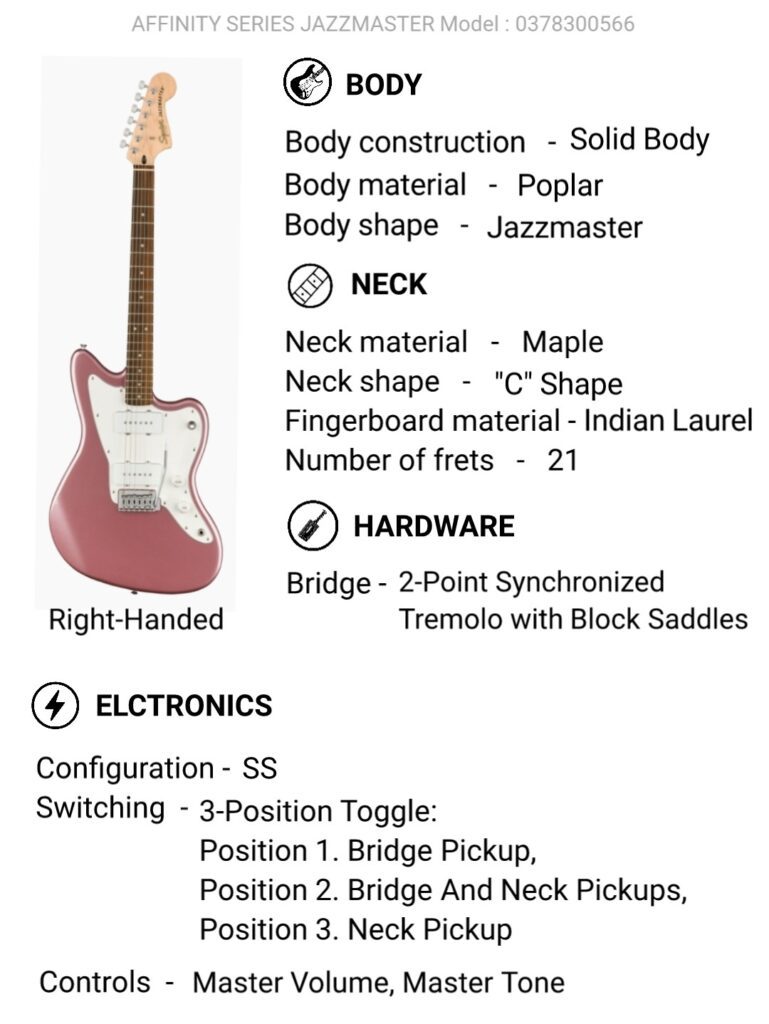
Fender Player Lead II
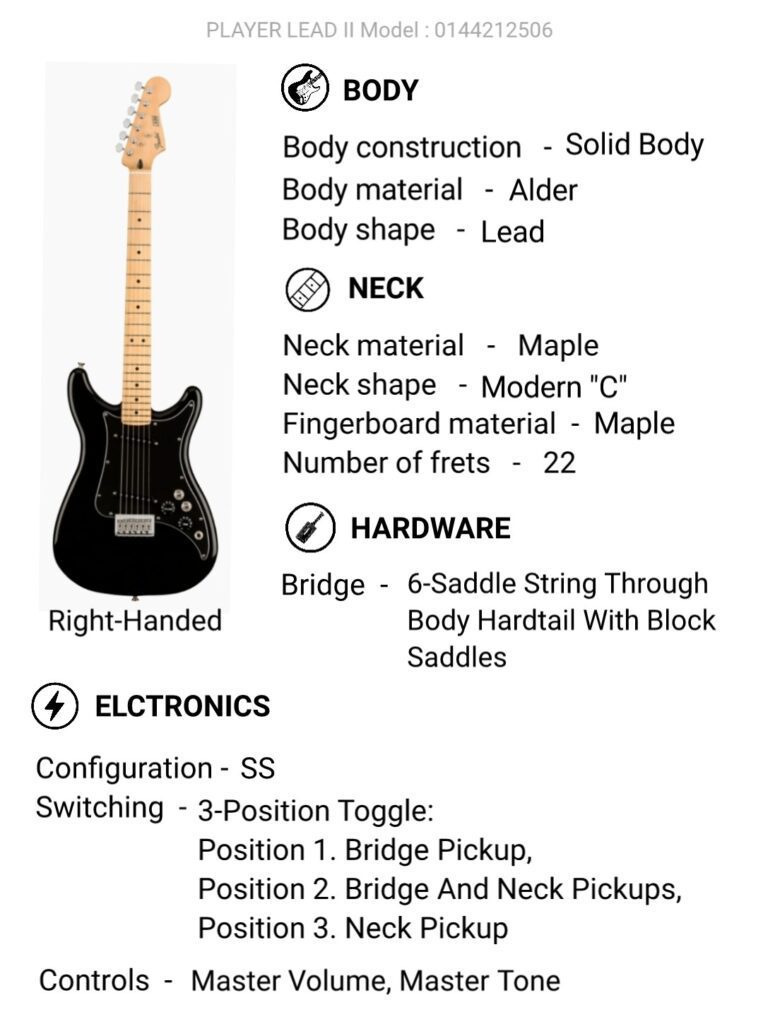
Fender Player Plus Nashville Telecaster
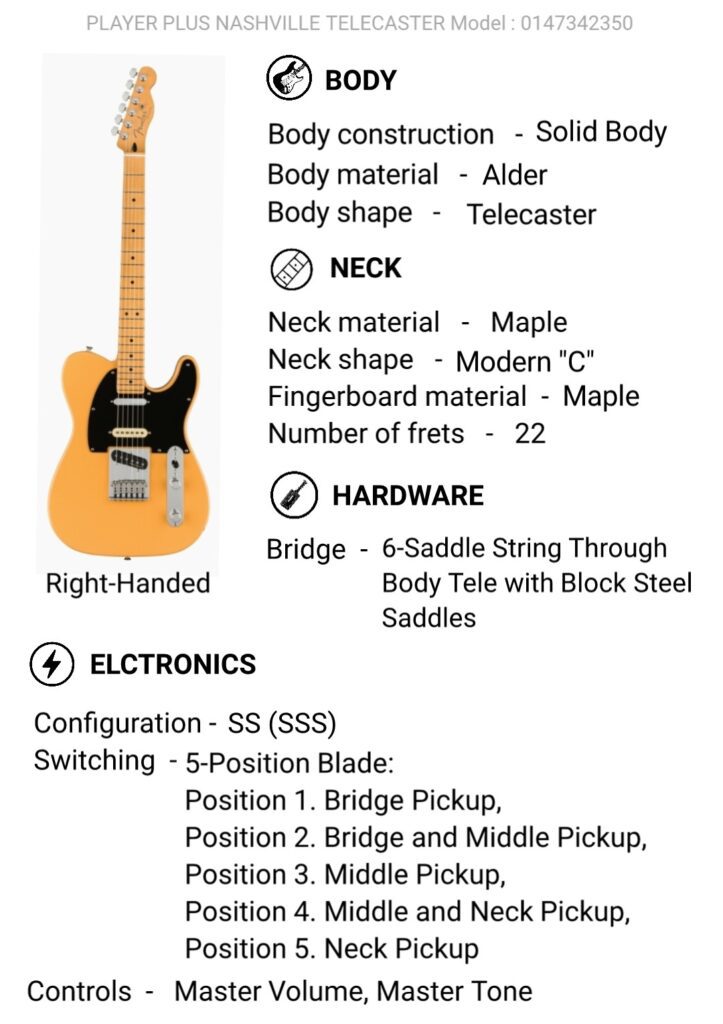
Fender Affinity Series Telecaster Left-Handed
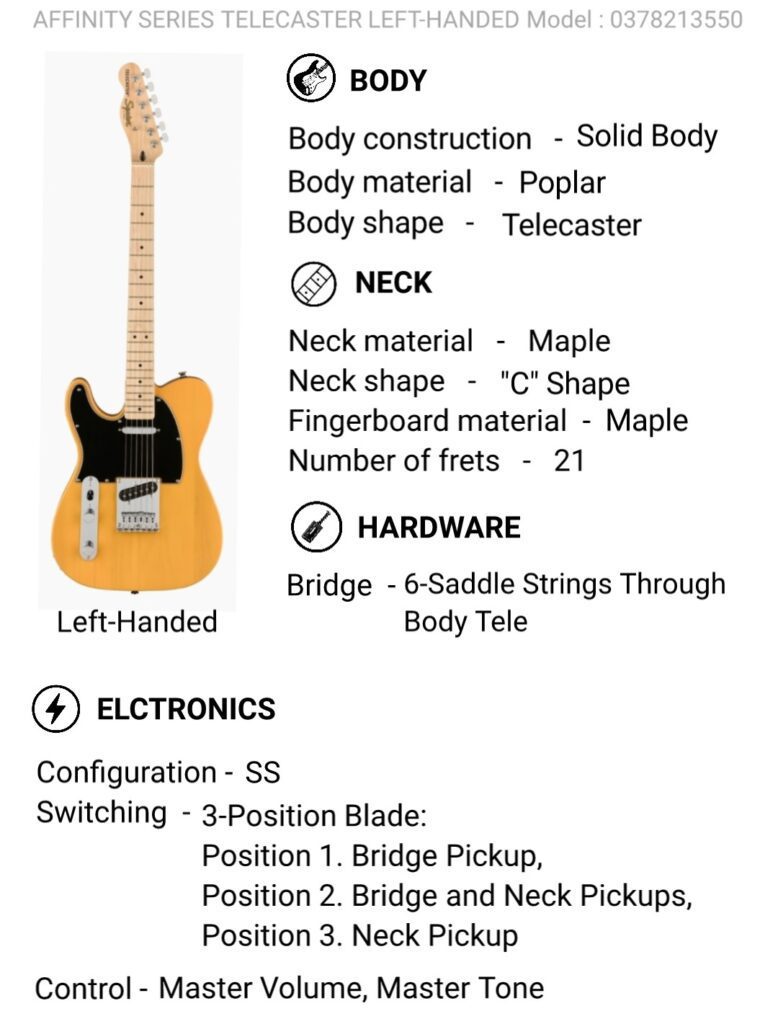
Fender Player Mustang 90

Fender 40th Anniversary Telecaster Gold Edition
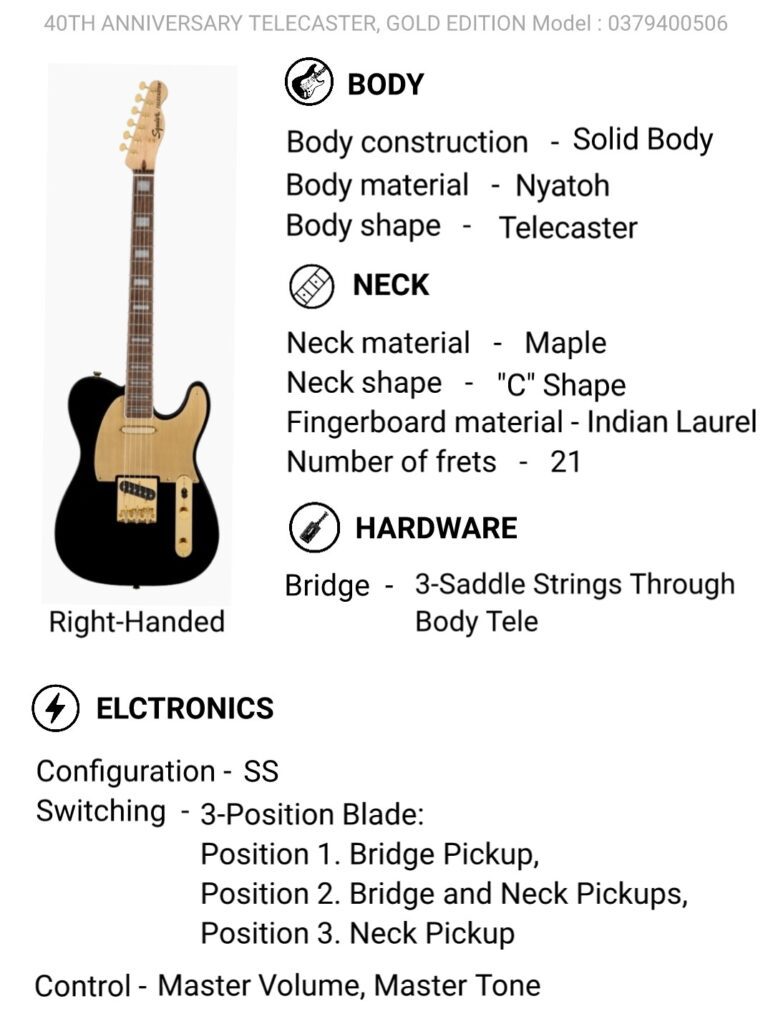
Fender American Ultra Telecaster
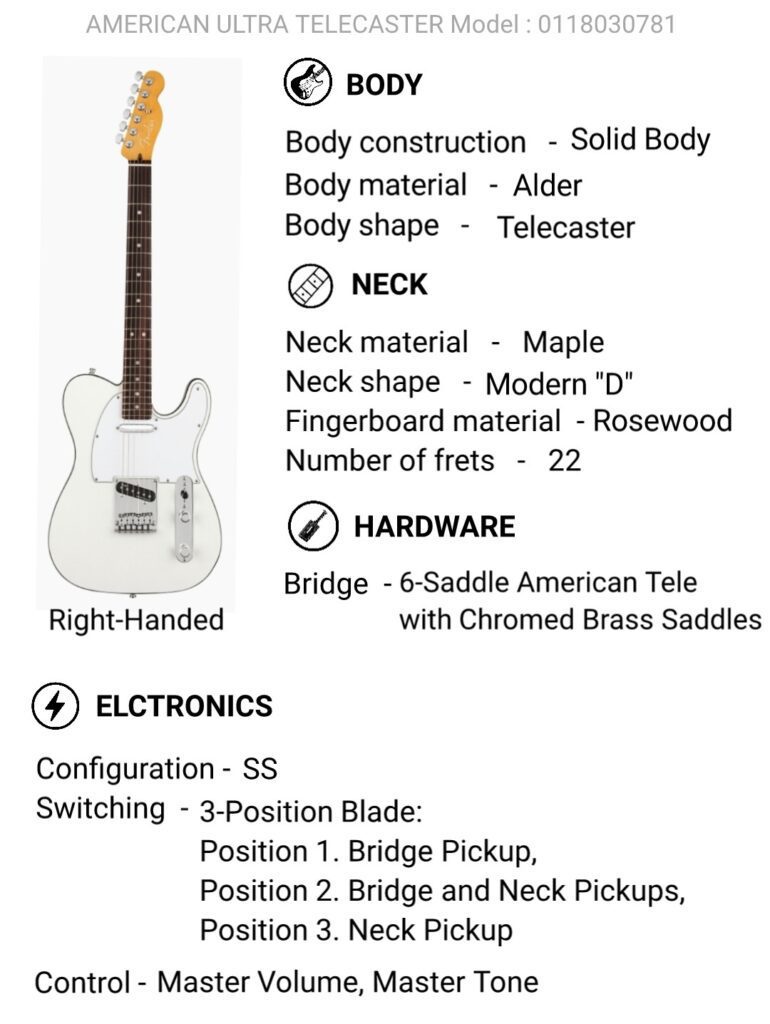
Fender Vintera 60s Telecaster Modified
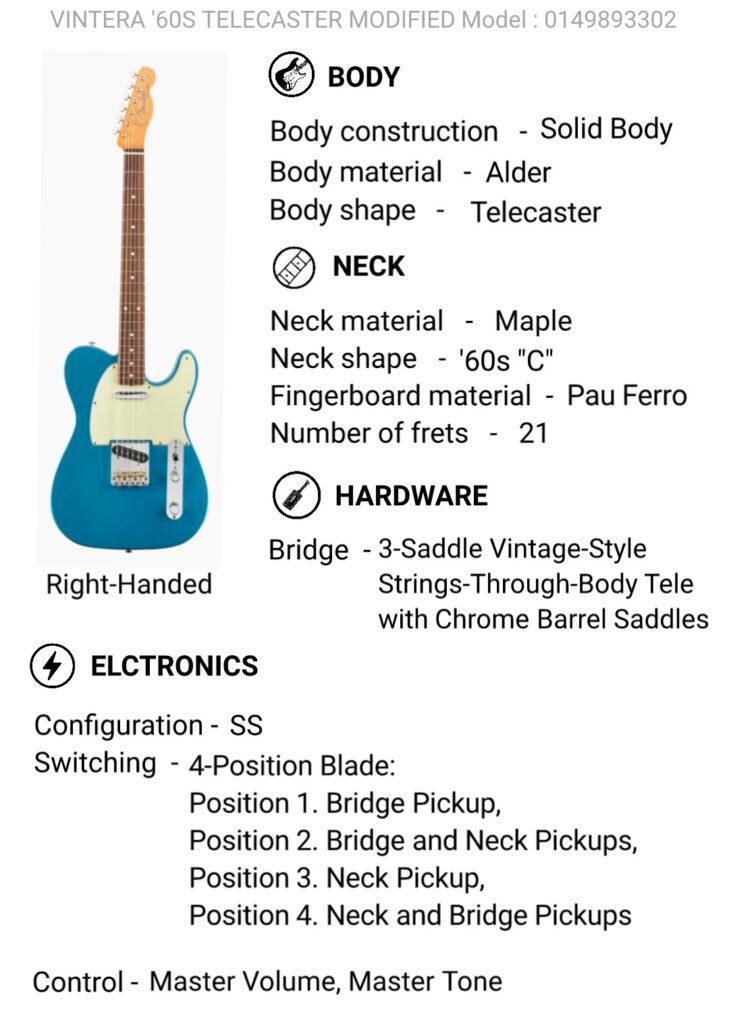
Introduction: The SS (Single-Coil-Single-Coil) electric guitar configuration is a classic setup that has been cherished by guitarists for decades. Renowned for its bright, articulate tones and distinctive sound, the SS configuration has left an indelible mark on the world of electric guitars. Let’s delve into the essence of SS guitars, exploring their history, characteristics, and enduring appeal.
”Read_More”
Characteristics:
- Bright, Clear Tones: Single-coil pickups are prized for their crisp, articulate sound, characterized by tight lows, sparkling highs, and a pronounced midrange. This clarity makes SS guitars well-suited for genres like blues, country, funk, and classic rock, where definition and expressiveness are paramount.
- Dynamic Range: SS guitars boast a wide dynamic range, allowing players to achieve a broad spectrum of tones simply by adjusting their playing technique. From gentle fingerpicking to aggressive strumming, SS guitars respond dynamically to the nuances of a player’s touch, facilitating expressive performances.
- Versatility: The SS configuration offers versatility, enabling guitarists to explore a diverse range of musical styles and sonic textures. Whether delivering shimmering cleans, gritty overdriven tones, or searing lead lines, SS guitars excel in adapting to different musical contexts with ease.
- Distinctive Sound: SS guitars possess a unique sonic character that sets them apart from other pickup configurations. The chiming, bell-like tones of single-coil pickups lend SS guitars a distinctive voice that has become synonymous with the sounds of countless iconic recordings and performances.
Enduring Appeal: Despite the evolution of electric guitar technology and the introduction of new pickup configurations, the timeless allure of the SS setup remains undiminished. Guitarists continue to gravitate towards SS guitars for their classic tone, playability, and iconic design, ensuring their enduring relevance in the ever-changing landscape of music.
In conclusion, the SS (Single-Coil-Single-Coil) electric guitar configuration stands as a testament to the enduring legacy of classic electric guitar design. From its inception to the present day, SS guitars have remained cherished instruments cherished by players worldwide, embodying the essence of tone, versatility, and musical expression.
For which Genres of music is the SS pickup configuration suitable?
The SS (Single-Coil-Single-Coil) pickup configuration is highly versatile and well-suited for a wide range of musical genres, thanks to its distinctive sonic characteristics. Here’s an explanation of the genres where the SS pickup configuration shines:
- Blues: SS guitars excel in blues music due to their ability to deliver crisp, articulate tones with a rich midrange. The bright, dynamic sound of single-coil pickups enhances the expressiveness of blues guitar playing, allowing for soulful bends, expressive phrasing, and gritty overdriven tones typical of traditional blues styles.
- Rock ‘n’ Roll: SS guitars have a long history in rock ‘n’ roll music, offering the twangy, punchy tones that define the genre. Whether delivering crunchy rhythm chords or soaring lead lines, the clarity and bite of single-coil pickups cut through the mix, providing the sharp attack and definition needed for driving rock ‘n’ roll riffs.
- Funk: The tight, percussive sound of SS pickups makes them ideal for funk music. Their articulate response and crisp attack lend themselves well to funk rhythm playing, where precision and clarity are essential. SS guitars produce the funky, staccato chords and syncopated rhythms characteristic of the genre.
- Country: SS guitars are a staple in country music, thanks to their bright, twangy tones that complement the genre’s upbeat rhythms and melodic lead lines. Single-coil pickups deliver the signature “chicken pickin'” sound prized by country guitarists, with clear articulation and a distinctive snap that cuts through the mix.
- Surf: The shimmering, reverb-drenched sound of surf music is synonymous with SS guitars, particularly the Fender Stratocaster. Single-coil pickups produce the bright, twangy tones essential for capturing the surf rock vibe, evoking images of sun-soaked beaches and crashing waves with their distinctive sound.
- Pop: In pop music, SS guitars are prized for their versatility and ability to adapt to various stylistic requirements. Whether delivering jangly chords, clean arpeggios, or melodic leads, the articulate, bright tones of SS pickups provide the clarity and presence needed to stand out in a pop mix.
In summary, the SS pickup configuration is suitable for genres such as blues, rock ‘n’ roll, funk, country, surf, and pop, thanks to its bright, articulate tones, dynamic response, and versatility. Whether delivering crunchy rhythm tones or expressive lead lines, SS guitars offer a wide range of sonic possibilities that cater to the diverse needs of musicians across different musical styles.
How to choose right SS electric Guitar
Choosing the right SS (Single-Coil-Single-Coil) electric guitar involves considering several factors to ensure it aligns with your playing style, preferences, and musical goals. Here’s a guide to help you make an informed decision:
- Define Your Budget: Determine how much you’re willing to spend on an SS electric guitar. SS guitars are available across a wide price range, from budget-friendly options to high-end models, so knowing your budget will narrow down your choices.
- Consider Your Playing Style: Think about the genres of music you primarily play or intend to explore with your SS guitar. If you’re into blues, rock ‘n’ roll, funk, or country, an SS guitar would be a suitable choice due to its bright, articulate tones. However, if you’re primarily interested in heavier genres like metal, you might prefer a guitar with humbucker pickups for added output and warmth.
- Check Pickup Configuration: Ensure the guitar has the SS pickup configuration you desire. While most SS guitars feature three single-coil pickups, some models may have variations like HSS (with a humbucker in the bridge position) or SSS+ (with additional switching options).
- Try Before You Buy: If possible, visit a guitar store to try out different SS guitars and get a feel for their playability, comfort, and sound. Pay attention to factors like neck profile, fretboard radius, and overall build quality to find a guitar that suits your preferences.
- Explore Brand and Model Options: Research reputable guitar brands known for producing quality SS guitars, such as Fender, Squier, G&L, and others. Explore different models within your budget range, considering factors like tonewood, hardware, and aesthetic preferences.
- Read Reviews and Seek Recommendations: Look for online reviews, forums, and recommendations from other guitarists to gather insights into specific SS guitar models. Pay attention to feedback regarding playability, tone, and overall satisfaction to help inform your decision.
- Consider Additional Features: Determine if you have any specific preferences or requirements regarding additional features such as tremolo systems, pickup switching options, or electronics. Some SS guitars may offer versatile pickup configurations or built-in effects for added sonic flexibility.
- Inspect Build Quality: Ensure the guitar is well-built and free from any noticeable defects or issues. Check for smooth fret ends, consistent fretboard radius, stable tuning stability, and overall craftsmanship to ensure you’re getting a reliable instrument.
- Factor in Aesthetics: While not essential, aesthetics can play a role in your decision-making process. Choose a guitar that resonates with you visually and reflects your personal style preferences.
By considering these factors and taking your time to explore different options, you can choose the right SS electric guitar that meets your needs and inspires you to create music.
Pros and Cons SS electric Guitars
SS (Single-Coil-Single-Coil) electric guitars offer a unique set of characteristics that appeal to a wide range of players. Below are the pros and cons of SS electric guitars to help you assess whether they suit your preferences and playing style:
Pros:
- Bright and Articulate Tone: SS pickups produce a bright, clear tone with excellent clarity and definition, making them ideal for genres like blues, rock ‘n’ roll, funk, and country.
- Versatility: SS guitars are highly versatile, capable of producing a wide variety of tones depending on pickup selection, amp settings, and playing technique. They can deliver anything from clean, jangly tones to gritty, overdriven sounds.
- Dynamic Response: Single-coil pickups have a dynamic response to playing dynamics, allowing players to achieve expressive nuances in their playing. They respond well to changes in picking attack and volume control adjustments.
- Distinctive Sound: The twangy, bell-like tone of SS pickups has a unique character that stands out in a mix, making SS guitars a popular choice for lead players and soloists who seek to cut through the band’s sound.
- Excellent for Clean Tones: SS pickups excel at producing pristine clean tones with a sparkling high end and tight bass response. They’re well-suited for chordal work, arpeggios, and melodic playing, particularly in genres that emphasize clean guitar tones.
- Tradition and Legacy: SS guitars have a rich history and heritage, particularly associated with iconic models like the Fender Stratocaster and Telecaster. Many legendary guitarists have used SS guitars to shape the sound of popular music over the decades.
Cons:
- Susceptibility to Hum and Noise: Single-coil pickups are more prone to picking up electromagnetic interference, resulting in hum and noise, especially at higher gain settings. This can be mitigated to some extent with proper shielding and noise-canceling techniques.
- Less Output Compared to Humbuckers: SS pickups typically have lower output compared to humbuckers, which may not provide enough punch and sustain for players in heavier genres like hard rock and metal without additional gain stages or effects.
- Limited Low-End Response: Due to their design, SS pickups may lack the deep bass response and warmth associated with humbuckers, making them less suitable for genres that require a thick, heavy low-end, such as metal and hard rock.
- Sensitivity to Interference: SS pickups are more susceptible to interference from nearby electronic devices, fluorescent lighting, and other sources of electromagnetic interference. This can be a concern in certain performance environments and recording situations.
- Bridge Pickup Can Be Harsh: The bridge pickup on SS guitars can sometimes sound overly bright or harsh, especially when played with distortion or high-gain settings. This may require adjustments to the amp or pedal settings to achieve a more balanced tone.
- Less Midrange Emphasis: SS pickups tend to emphasize the high and low frequencies, with less midrange presence compared to humbuckers. This may affect the guitar’s ability to cut through dense mixes or provide a thick, creamy lead tone favored in certain styles.
Overall, while SS electric guitars offer a distinctive and versatile tonal palette, they also come with certain limitations and considerations that may affect their suitability for specific playing styles and musical genres. It’s essential to weigh these pros and cons against your preferences and requirements when choosing an SS guitar.
History of SS electric Guitars
The history of SS (Single-Coil-Single-Coil) electric guitars is deeply intertwined with the evolution of electric guitar technology and the development of iconic models that have shaped the sound of popular music over the decades.
- Origins of Single-Coil Pickups: Single-coil pickups were among the earliest types of electromagnetic pickups used in electric guitars. Pioneered by inventors like George Beauchamp, Adolph Rickenbacker, and Paul H. Tutmarc in the 1920s and 1930s, these pickups consisted of a single coil of wire wrapped around magnets, which converted string vibrations into electrical signals.
- Fender Stratocaster and Telecaster: The introduction of the Fender Telecaster in 1950 and the Stratocaster in 1954 solidified the popularity of SS electric guitars. These iconic models featured three single-coil pickups (SSS configuration) and introduced innovations such as the synchronized tremolo system (on the Stratocaster) and the bolt-on neck design. The bright, twangy tone of these guitars played a significant role in defining the sound of rock ‘n’ roll, blues, country, and surf music.
- Introduction of Iconic Models: In the 1950s, Leo Fender introduced the Fender Telecaster, which featured an SS pickup configuration. With its simple yet effective design, the Telecaster became an instant classic, renowned for its crisp, articulate tone and rugged reliability. Its popularity among country, rock, and blues musicians cemented its status as an iconic instrument.
- Growth of Electric Guitar Popularity: Throughout the 1950s and 1960s, the electric guitar surged in popularity, thanks in part to the success of models like the Fender Stratocaster and Telecaster. Other manufacturers, including Gibson, Guild, and Rickenbacker, also produced SS guitars, contributing to their widespread adoption among professional musicians and amateur players alike.
- Expansion of Pickup Configurations: While the SSS configuration remained prevalent, guitar manufacturers began experimenting with different pickup configurations to offer players a variety of tonal options. This led to the introduction of guitars with HSS (humbucker-single-coil-single-coil), HSH (humbucker-single-coil-humbucker), and HH (dual humbucker) configurations, among others.
- Diversification of Musical Genres: SS guitars found favor among musicians across various musical genres, from blues and rock to funk, jazz, and beyond. Artists like Jimi Hendrix, Eric Clapton, Stevie Ray Vaughan, and John Mayer helped popularize the sound of SS guitars through their influential recordings and performances.
- Continued Innovation and Evolution: In the decades since their introduction, SS guitars have continued to evolve and adapt to changing musical trends and technological advancements. Guitar manufacturers have introduced modern variations of classic SS models, incorporating features like compound radius fretboards, locking tremolo systems, and noise-canceling pickups to enhance playability and versatility.
- Enduring Legacy: Despite the proliferation of alternative pickup configurations, SS guitars remain a staple in the guitar world, cherished for their distinctive tone, sleek design, and cultural significance. They continue to inspire new generations of players and contribute to the rich tapestry of electric guitar music.
Overall, the history of SS electric guitars is a story of innovation, creativity, and cultural impact, with iconic models like the Fender Stratocaster and Telecaster leaving an indelible mark on the history of music.
”Read_Less”

